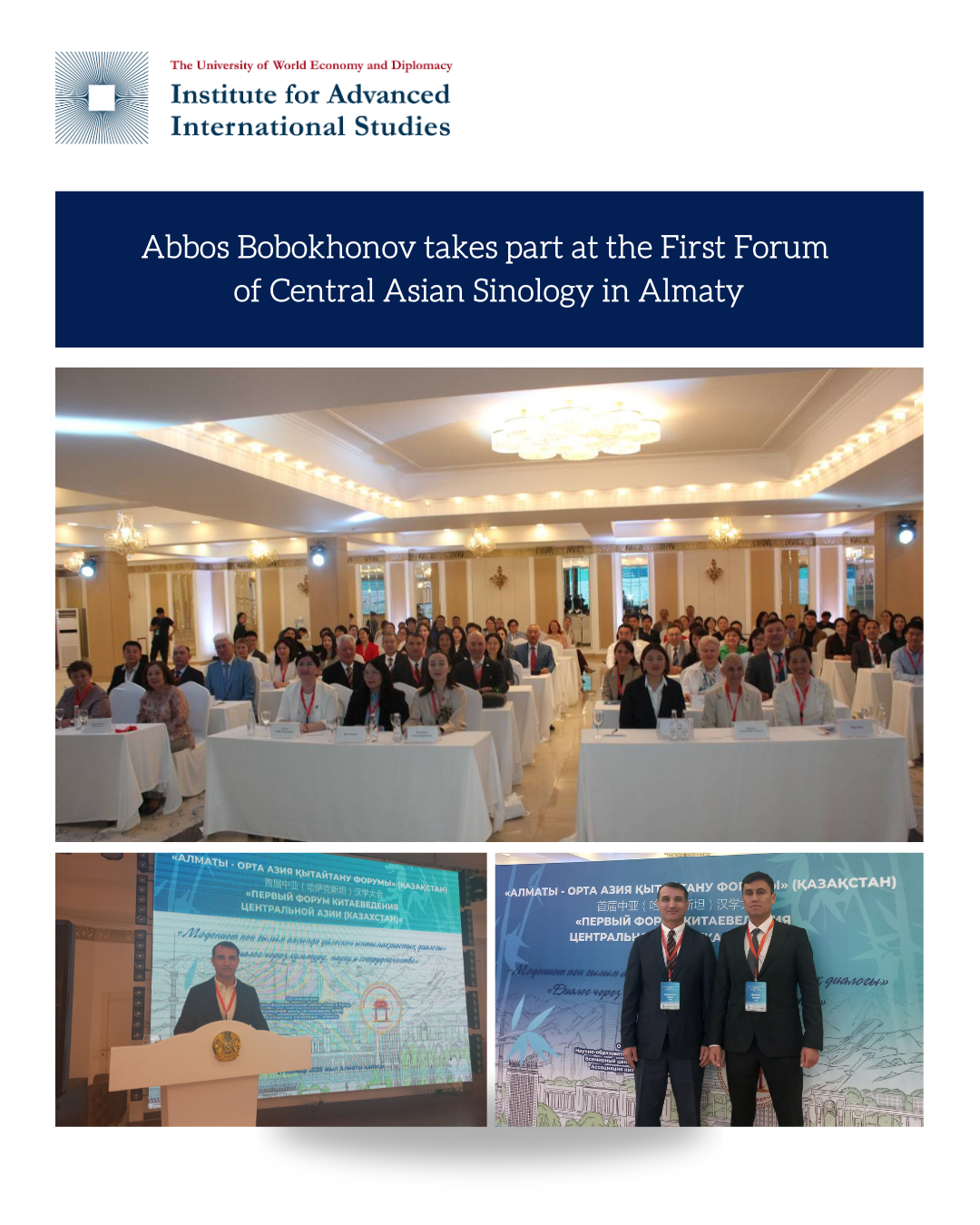
The First Forum of Central Asian Sinology, organized by the Scientific and Educational Center “Belt and Road” (Almaty), the World Sinology Center of Beijing Language and Culture University (Beijing-Qingdao) and the Sinologists’ Association of Almaty, was held in Almaty on May 21. Their joint efforts provided a high scientific and organizational base for the event, which brought together more than 170 specialists from Kazakhstan, Kyrgyzstan, Uzbekistan, Tajikistan and China to discuss current methodological approaches to the study of China, the role of sinology in regional politics and educational practices in teaching Chinese language and culture.
The forum opened with welcoming speeches by the leaders of the three organizations, who stressed the importance of strengthening academic ties between Central Asia and the Middle Kingdom. The participants delved into an in-depth analysis of the historical path of sinology in the region and the current methodological challenges faced by sinology scholars. Panel discussions covered a wide range of issues: from the historical evolution of sinology in Central Asian countries to the integration of research programs under the Belt and Road Initiative. The participants exchanged in detail the results of recent projects, outlined ways of joint development of network resources and formation of a unified corpus of scientific publications and teaching materials.
Dr. Abbos Bobokhonov, Head of IAIS Center for Asia-Pacific Studies, made a presentation at the forum. He outlined the key stages in the formation of sinology in Uzbekistan, and also noted the key challenges of the present day: lack of centralized archival bases, disparate research, and lack of personnel with academic knowledge of Chinese. Dr. Bobokhonov suggested expanding the format of digital libraries and creating inter-university research groups capable of responding quickly to political-economic challenges and developing joint analytical reports for government and business structures. Concluding his speech, he presented a strategic vision for the further development of Chinese studies in Uzbekistan and the region as a whole, emphasizing the need to institutionalize the discipline.
The forum concluded with the adoption of a roadmap for the implementation of the participants’ proposals. In particular, it was decided to establish a working group under the auspices of the Association of Chinese Studies in Almaty to coordinate the training of young researchers and develop joint educational programs. This platform will become the basis for further deepening of scientific ties and improving the quality of sinological research in Central Asia.
The First Forum of Central Asian Sinology in Almaty laid a solid foundation for an interregional expert network. The realization of the planned projects and regular organization of such meetings will allow to deepen the understanding of cultural, economic and political processes between the countries of Central Asia and China.